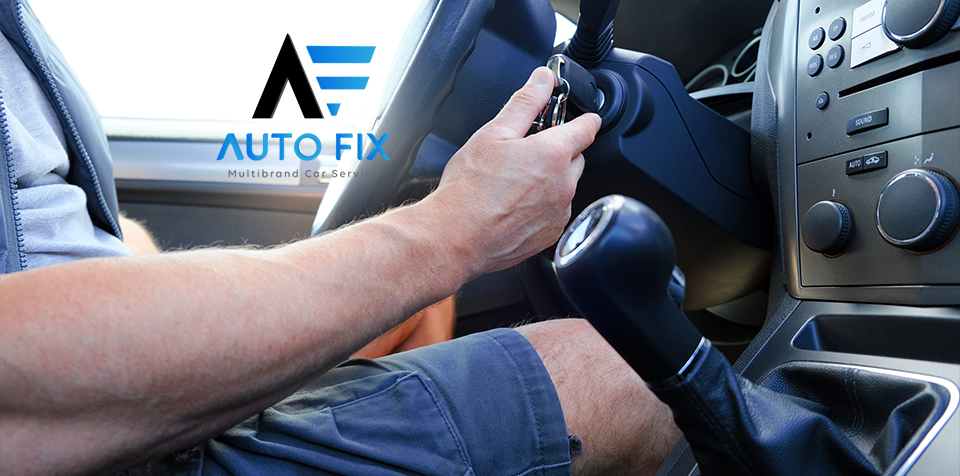
- 25-01-2024
Car Won't Start? Quick Diagnosis and Top-notch Car Battery Replacement in the UAE!
The reasons for your car's stubbornness can range from a simple dead battery to more complex problems like a faulty ignition switch or faulty starter motor. By paying attention to certain signs and knowing some basic vehicle functions, you can begin to piece together the puzzle of your wayward car. However, if you want a longer-lasting solution, especially if your battery is old or unreliable, you should opt for a Car battery replacement. So grab a seat as we get into the specifics of start concerns, transforming a potentially stressful circumstance into a chance to exercise your problem-solving abilities.
Also Read: DIY vs. Professional Car Battery Replacement: Which One is Right for You?
Why won't my car start? Unraveling the Mystery with Expert Car Battery Replacement
1. Check the Battery
Car batteries are like a high-maintenance friend that requires constant attention and can cause a real headache if left unattended. The main cause of starting problems in cars can be that the battery is discharged, empty or simply can no longer be charged.
Visual Inspection: Inspect the battery for visible signs of corrosion or a loose connection.
Voltage Test: Check the battery voltage with a multimeter. The usual reading for a fully charged battery is 12.6 volts.
Battery Maintenance Tips
You can extend the life of your car battery and avoid dead battery problems later on by maintaining it. Here are some pointers for maintaining the best possible condition for your battery.
- Make sure your battery is corrosion-free and kept clean. Regularly inspect and clean the battery terminals. Before you start your automobile, especially in the winter, make sure your battery is fully charged.
- Regularly have your battery inspected at a fast-fix vehicle repair facility, like a franchise that changes oil.
Regular cleaning, inspection and charging ensure that the battery remains in optimal condition, reducing the risk of unexpected failures and the need for urgent car battery replacement.
2. Check the Fuel System
Make sure your car is getting the fuel it needs by checking for humming in the fuel pump and testing the injectors.
Fuel Pump Noise: When the key is in the "on" position, listen for a humming sound, which is an indication that the fuel pump is operating.
Fuel Injector Test: Turn the key and loosen a fuel line to see if fuel is getting to the engine.
3. Examine the Initiator
The starter or starter is an electric motor that is responsible for turning the internal combustion engine to initiate the starting process.
Keep an Ear Out for Clicking Sounds: When turning the key, a quick clicking sound could mean that the starter is broken.
Verify the Connections on the Starter: Make that the starter's electrical connections are tight.
4. Inspect the Alternator
When the engine is running, the alternator is in charge of charging the battery. If your alternator fails, it can cause your battery to die and your car not to start.
Battery Light: If the battery light on the dashboard is illuminated, this could indicate a faulty alternator.
Voltage Output Test: Test the alternator voltage output with a multimeter.
5. Assess the Ignition Switch
The electrical connection that powers the starter motor and the key might be broken by a malfunctioning ignition switch.
Key Turn Problems: If the key turns but nothing happens, there might be a problem with the ignition switch.
Look for Burn Marks: Check for burn marks or strange odours coming from the ignition switch.
Also Read: Emergency Car Battery Services in Dubai: What to Do When You’re Stranded
Common Solutions
Start the Battery: Use jumper cables and a second vehicle to jump-start your car. Verify that the jumper cables are attached properly. Preventing starting issues with your car starts with routine car battery replacement.
Replacing Defective Components: Depending on the diagnosis, replace or repair defective components such as the battery, starter, alternator, ignition switch or spark plugs.
Fuel System Check: If the problem is in the fuel system, you should check and replace the fuel pump, fuel filter, or fuel injectors. Maintaining the fuel system in good condition is essential for optimum engine performance.
Dealing with a car that won't start can be a daunting experience, but with the knowledge to diagnose common problems, you can troubleshoot and potentially solve the problem yourself.
If uncertainties linger, don't hesitate to engage professional AutoFix Multi Brand Car Service assistance for a thorough diagnosis and a speedy return to the open road.
Also Read: Car Battery Replacement: Things That Every Driver Should Know